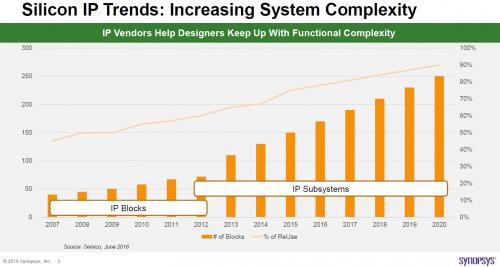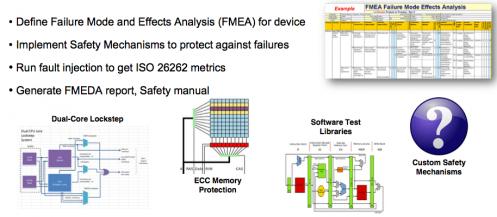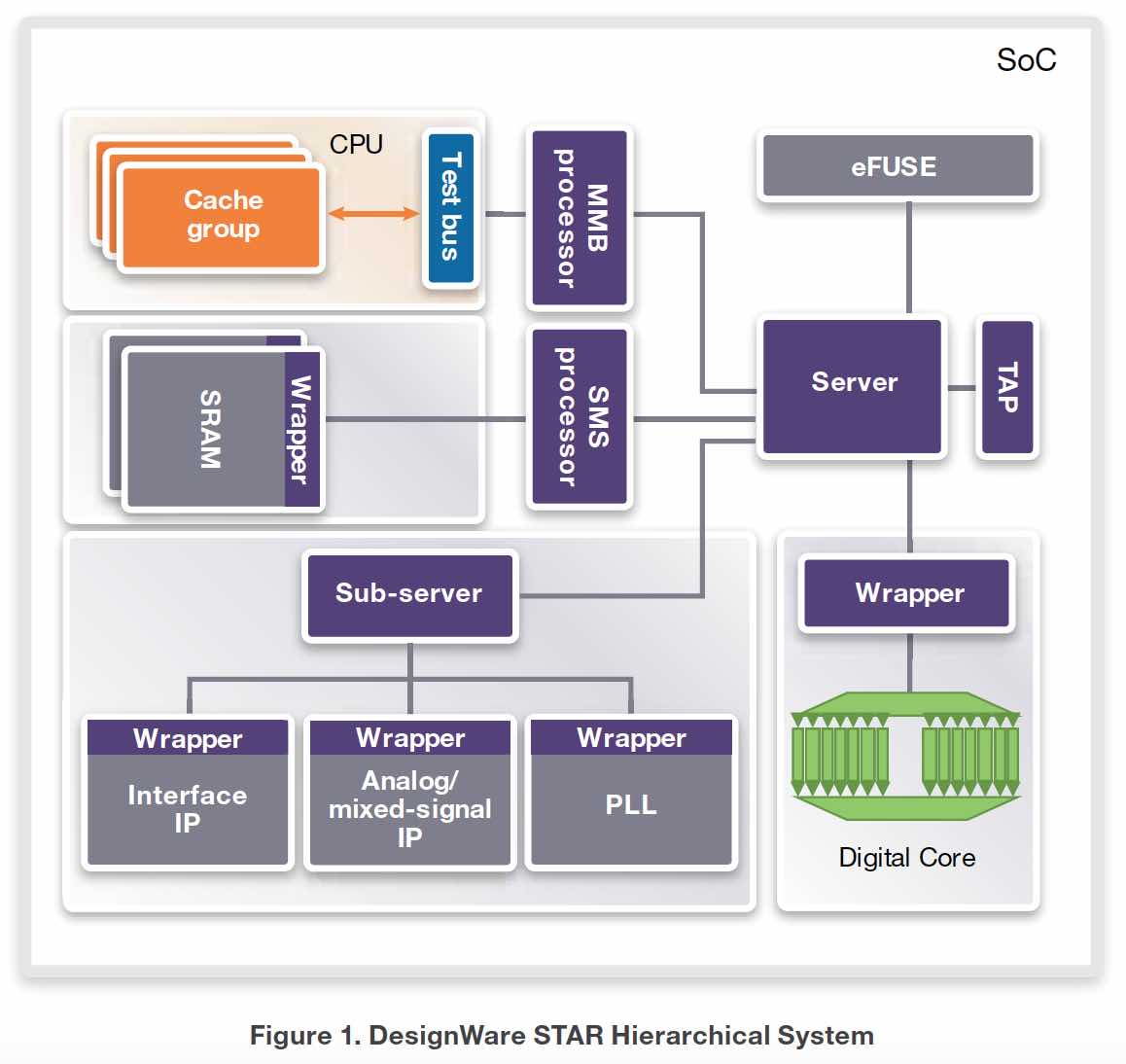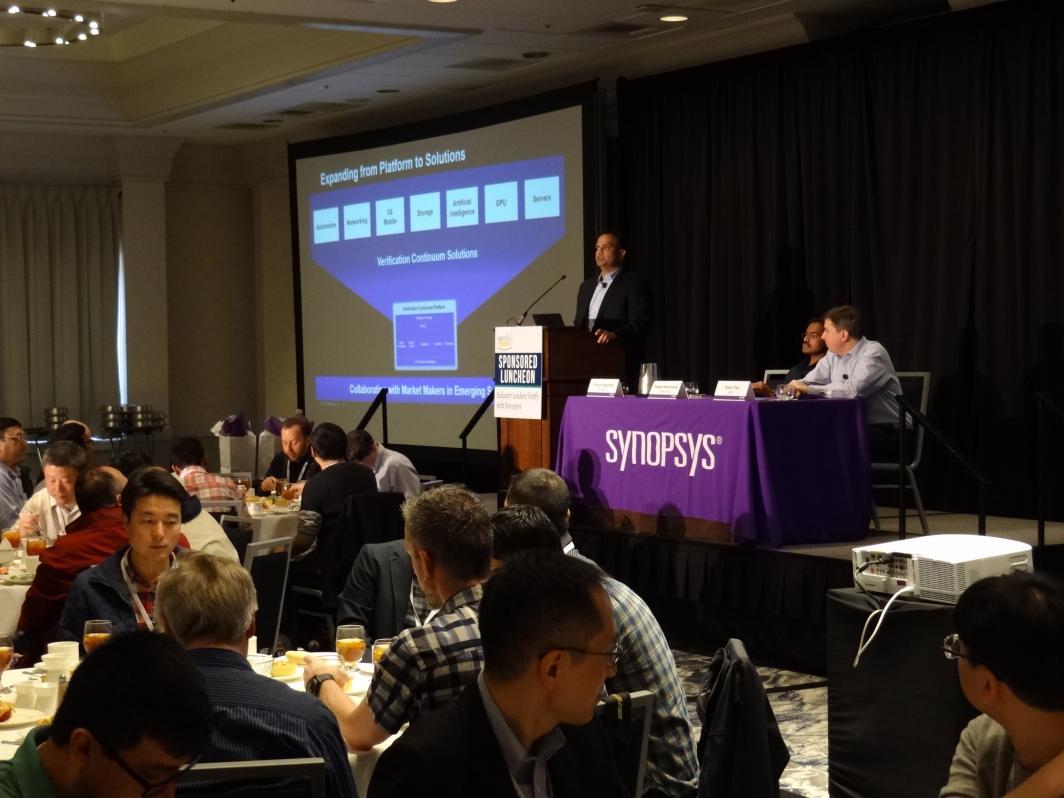On April 17, Mick Posner, Director of Product Marketing, IP Subsystems, Hardening & IP Kit solutions held a Webinar entitled ‘Getting more from your IP Vendor, IP Tuned to Your SoC’. This brought back memories of the challenges in days past of making the right choices in IP selection, integration and validation when prudence… Read More
Functional Safety – the Analytics
ISO 26262 is serious stuff, the governing process behind automotive safety. But, as I have observed before, it doesn’t make for light reading. The standard is all about process and V-diagrams, mountains of documentation and accredited experts. I wouldn’t trade a word of it (or my safety) for a more satisfying read, but all that … Read More
Safety Critical Applications Require Onboard Aging Monitoring
When it comes to safety, ISO 26262 is the spec that comes to mind for many people. However, there are layers of specifications that enable the level of safety required for automotive and other systems that need high reliability. For any application requiring safety, test is a critical element. A key spec for SOC test is IEEE 1500, … Read More
Tutorial on Advanced Formal: NVIDIA and Qualcomm
I recently posted a blog on the first half of a tutorial Synopsys hosted at DVCon (2018). This blog covers the second half of that 3½ hour event (so you can see why I didn’t jam it all into one blog :D. The general theme was on advanced use models, the first half covering use of invariants and induction and views from a Samsung expert on efficient… Read More
A DVCon Tutorial on Advanced Formal Usage
Synopsys has been quite active lately in their messaging around formal verification. One such event at DVCon this year was a tutorial on some of the more advanced techniques/ methodologies that are accessible to formal teams, mostly presented by customers, though opened by a Synopsys presentation. The tutorial covered so many… Read More
Aart de Geus At the Heart of Impact!
At the Silicon Valley SNUG 2018, Synopsys Chairman and co-CEO Dr. Aart de Geuss gave his keynote speech addressing attendees on how far we have evolved, and at times encountered the aha factor that helps propel us to the next level. He explored trends as well as the current state of his company solution offerings.
Moore’s Law, Digital… Read More
Qualcomm, AMD on Verification with Synopsys
Synopsys hosts a regular lunch at DVCon each year (at least over the last few years I have checked), a nice meal and a show, opening a marketing update followed by 2-3 customer presentations on how they use Synopsys verification in their flows. This year’s event was moderated by Piyush Sancheti from Synopsys Verification marketing… Read More
Don’t Stand Between The Anonymous Bug and Tape-Out (Part 2 of 2)
The second panel is about system coverage and big data. Coverage metrics have been used to gauge the quality of verification efforts during development. At system level, there are still no standardized metrics to measure full coverage. The emergence of PSS, better formal verification, enhanced emulation and prototyping techniques… Read More
Don’t Stand Between The Anonymous Bug and Tape-Out (Part 1 of 2)
In the EDA space, nothing seems to be more fragmented in-term of solutions than in the Design Verification (DV) ecosystem. This was my apparent impression from attending the four panel sessions plus numerous paper presentations given during DVCon 2018 held in San Jose. Both key management and technical leads from DV users community… Read More
EDA and Semiconductor — Is There Growth In The Ecosystem?
The semiconductor industry has gone through several major transitions driven by different dynamics such as shift in business models (fab-centric to fab-less), product segmentation (system design house, IP developers) and end market applications (PC to cloud; and recently, to both automotive and Internet of Things — IOT’s,… Read More











